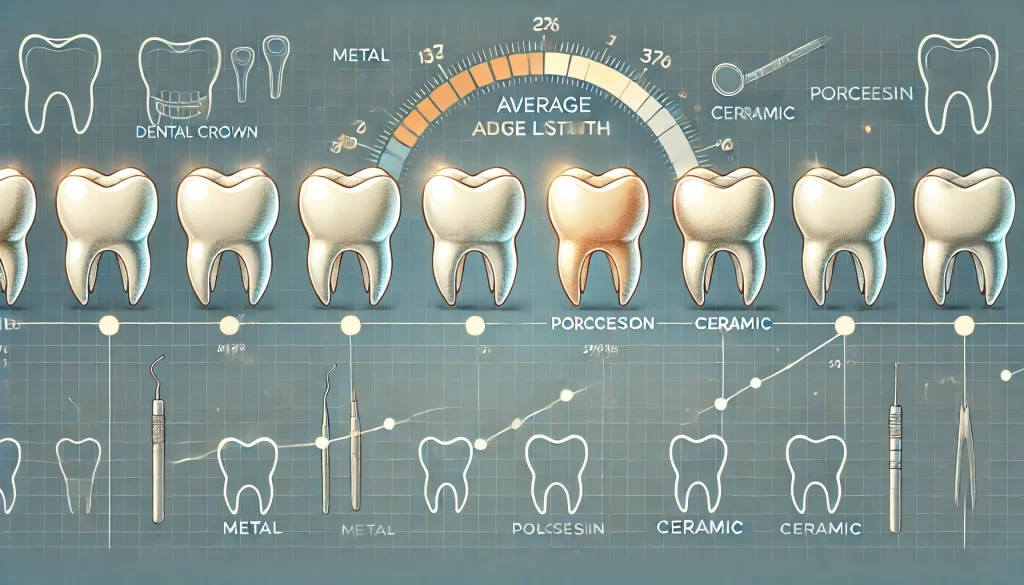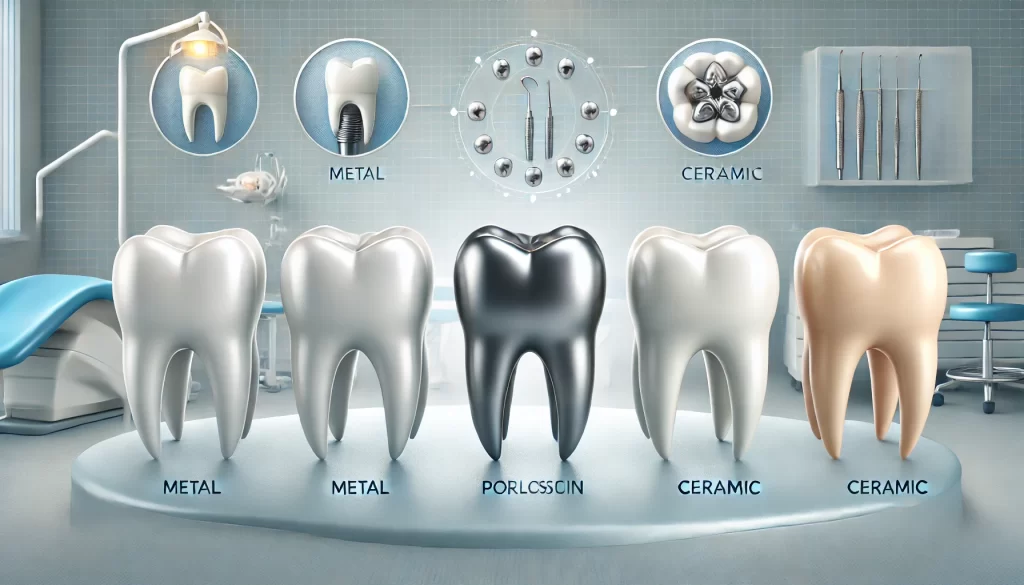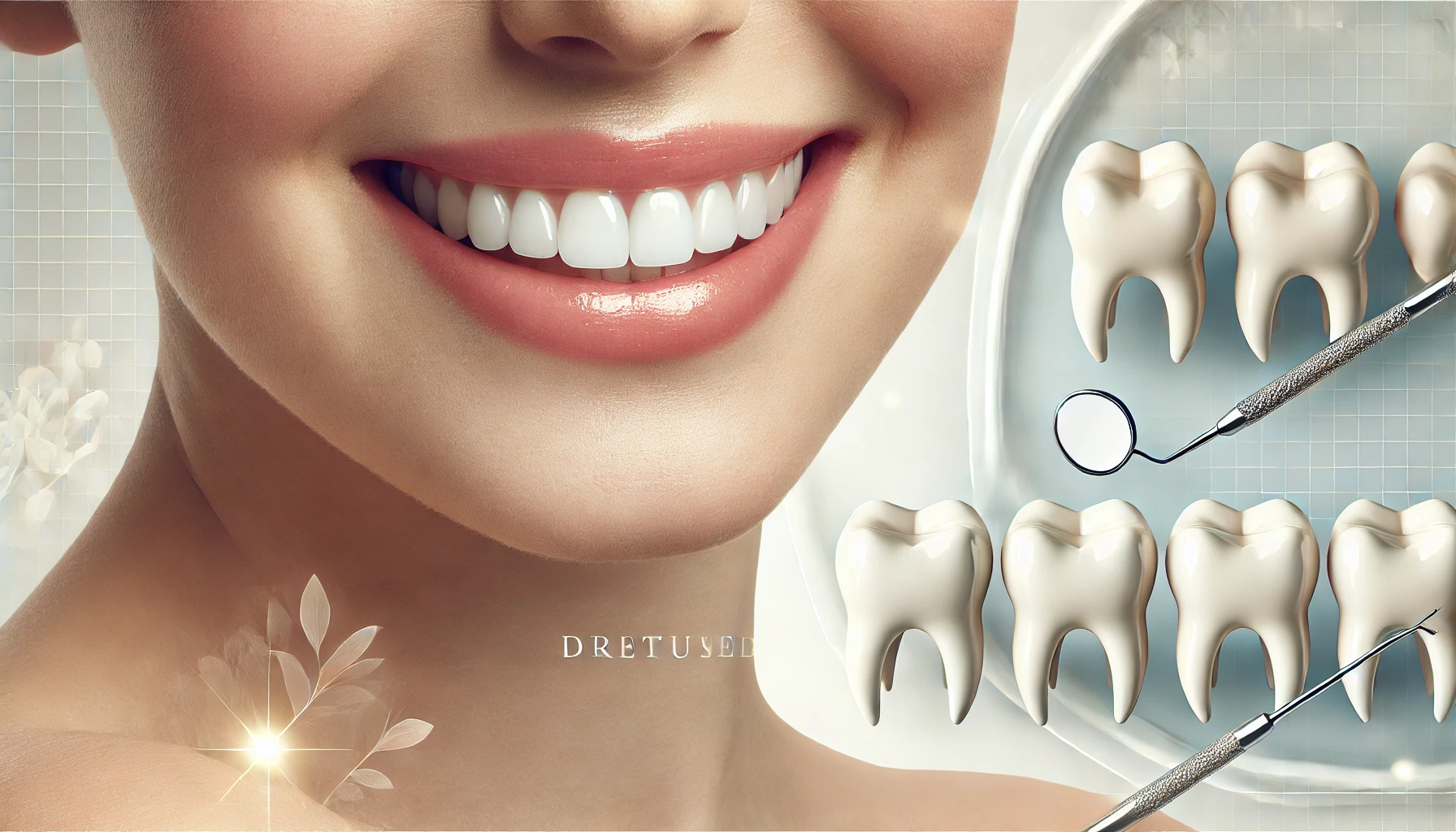Table of Contents
When you get a dental crown, the big question on your mind might be, how long does a crown last? Dental crowns are an investment in your smile and dental health, so it’s natural to wonder about their durability. In this article, we’ll explore everything you need to know about the lifespan of crowns and the factors that influence their longevity. Plus, we’ll uncover some surprising truths you might not expect!
What Is a Dental Crown?

A dental crown is a cap placed over a damaged tooth to restore shape, size, and function. Crowns are often used after root canal treatment to cover large fillings or to protect weak teeth. They can also be used for cosmetic purposes, improving the appearance of a tooth. But while crowns are a fantastic solution for many dental issues, you might be wondering: how long does a crown last?How Long Does a Crown Last on Average?
A dental crown has an average life of five to fifteen years. However, many crowns can live even longer if given the right maintenance. It’s important to understand that different types of crowns have different lifespans, and several factors can influence how long your crown lasts. So, how long does a crown last exactly? Let’s break it down.
Factors That Affect the Lifespan of a Crown
- Material of the Crown: Crowns are made from various materials, including metal, porcelain, and ceramic. Metal crowns tend to last the longest, often surviving over 20 years. Porcelain and ceramic crowns, while more natural-looking, may not be as durable but still offer many years of reliable use.
- Oral Hygiene Habits: How well you care for your teeth can impact your crown’s length. Brushing twice daily, flossing daily, and regular dental checkups will ensure your crown stays in top condition.
- Bite Force: If you have a habit of grinding or clenching your teeth, this can shorten the lifespan of your crown. Using a mouthguard at night can help protect it from wear and tear.
- Location of the Crown: Crowns on molars tend to wear out faster than those on front teeth because molars are subject to more pressure from chewing, affecting how long a crown lasts.
How to Care for Your Dental Crown

Taking care of your crown is crucial to its longevity. While it might not require any special maintenance, following general oral care habits can make a big difference in how long does a crown last.
Steps to Protect Your Crown
- Regular Brushing and Flossing: Like natural teeth, your crown must be brushed and flossed daily. This helps to prevent plaque buildup around the base of the crown, which can lead to gum disease and damage to the supporting tooth.
- Avoid Hard Foods: Biting down on hard candies, ice, or non-food objects can crack or chip your crown. Be mindful of what you eat and avoid unnecessary risks that could shorten how long does a crown last.
- Use a Mouthguard: If you grind your teeth at night, wearing a mouthguard can prevent damage to your crown. Your dentist can help you get a custom-fitted guard for extra protection.
- Attend Regular Dental Checkups: Your dentist will monitor the condition of your crown during routine checkups. If any issues arise, they can fix them early, helping to extend how long does a crown last.
Can a Crown Be Replaced?
Yes, crowns can be replaced if necessary. Even the best-cared-for crowns may need replacing over time due to normal wear and tear. But how will you know when to replace your crown, and how long does a crown last before that happens? Here are some signs to watch for.
Signs Your Crown Needs to Be Replaced
- Pain or Sensitivity: If you notice pain when biting down or sensitivity to hot or cold, your crown may be damaged or loose, which can affect how long does a crown last.
- Visible Wear or Cracks: Crowns can become worn or cracked over time. If you notice any visible damage, it’s time to visit your dentist.
- Gum Recession: If your gums have receded around the crown, it may expose the tooth underneath to decay, which could mean you need a replacement sooner than expected, affecting how long a crown lasts.
Types of Dental Crowns and Their Lifespan
There are several types of dental crowns, each with different durability and lifespan. Let’s explore the most common ones and how long you can expect each to last.
Metal Crowns
Often made from gold or stainless steel, metal crowns are the most durable option. With proper care, they can last 20 years or more. Their strength makes them ideal for molars where chewing pressure is the greatest, greatly extending the life of a crown.
Porcelain Crowns
Porcelain crowns are famous for their natural appearance and are often used on front teeth. However, they are not as strong as metal crowns. On average, porcelain crowns last between 10 to 15 years, which can impact how long does a crown last.
Ceramic Crowns
Ceramic crowns are an excellent option for those with metal allergies or who want a crown that looks very natural. While they look great, they’re slightly less durable than metal crowns, typically lasting 10 to 15 years, influencing how long does a crown last.
Also Read: How Fast Does Bile Duct Cancer Spread? Uncover the Shocking Truth
Can a Crown Last a Lifetime?
While a crown can last a lifetime with perfect care, it’s more common for crowns to need replacement after several years. Many people enjoy decades of use from their crowns before any issues arise. So, while how long does a crown last can vary, excellent care can ensure long-term durability.
Is There Anything You Can Do to Make a Crown Last Longer?
Yes! The best way to ensure your crown lasts as long as possible is by maintaining excellent oral hygiene, avoiding hard or sticky foods, and visiting your dentist regularly. Taking these steps will keep your natural teeth and crowns in great shape for years to come. The better your care, the longer how long does a crown last.
In conclusion, how long does a crown last? On average, you can expect your crown to last between 5 to 15 years, depending on the material and your oral care habits. You can extend your lifespan by following good dental hygiene practices and protecting your crown from damage. If you’re experiencing discomfort or signs of wear, don’t hesitate to visit your dentist to discuss replacement options. With proper care, your crown can provide you with many years of service, helping to keep your smile healthy and beautiful.

